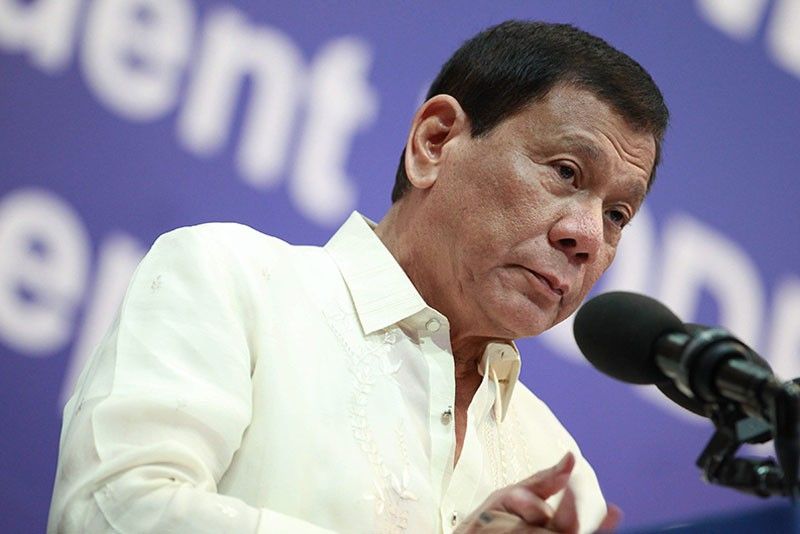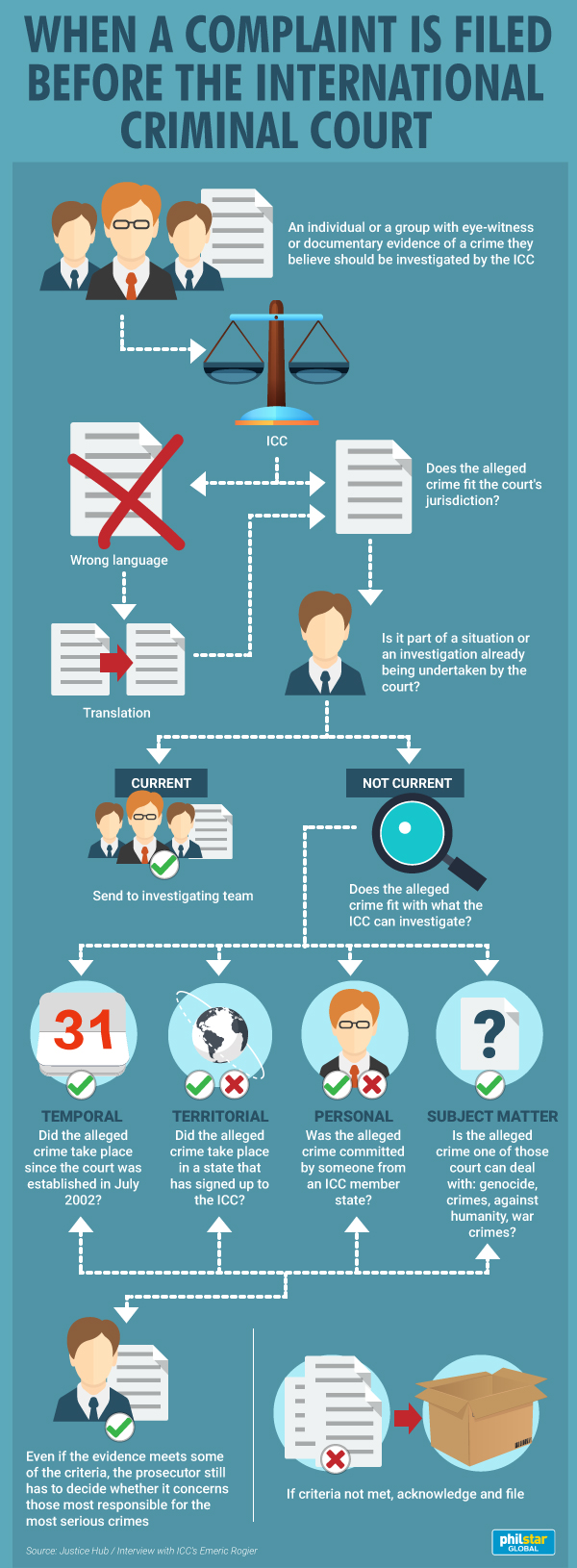ICC to set initial review of accusations vs Duterte, drug war

Roque insisted that preliminary examination is different from preliminary investigation, adding that the opposition should not claim a victory.
MANILA, Philippines (Updated 1:45 p.m.) — President Rodrigo Duterte welcomed the move of the International Criminal Court to open a preliminary examination into the alleged extrajudicial killings linked to the government’s brutal war on drugs, Malacañang announced Thursday.
"He is sick and tired of being accused of crimes against humanity... He swore an oath to protect the republic against threats to national security," presidential spokesperson Harry Roque said in a press briefing Thursday.
He insisted that a preliminary examination is different from preliminary investigation, adding that critics and the opposition should not claim a victory because of the development.
“The office of the prosecutor is merely exercising his mandate to determine whether there is reasonable basis to proceed with an investigation into a situation pursuant to the criteria in the Rome Statute namely jurisdiction, admissibility and interest of justice,” Roque said.
He remains confident that it “will not go beyond preliminary investigation.”
Duterte was accused of crimes against humanity over the drug war
But Roque claimed that that the drug war is a “lawful legitimate police operation” and “cannot be characterized as attack against civilian population.”
WATCH: What you need to know about the International Criminal Court
Communications, not cases
Roque clarified that communications were filed against Duterte, not cases.
“If they think they have indicted the president, that’s so wrong. They wish,” Roque said.
In June last year, Sen. Antonio Trillanes IV and Rep. Gary Alejano (Magdalo party-list) filed a supplemental communication against Duterte before the ICC, urging the international tribunal to look into the allegations against Duterte.
It was a supplement to the communication filed by Jude Sabio, lawyer of self-confessed hitman Edgar Matobato last April 2017. He accused the president along with 11 other government officials of committing “mass murder” in the country.
In a speech at an international tribunal’s diplomatic conference in New York City in December last year, Roque said that ICC is a “court of last resort” and has no reason to investigate the administration’s war on drugs.
ICC will only act if a case is not investigated or prosecuted by a national judicial system.
He added that the country has a “functional criminal justice system.”
Human Rights Watch International Justice Program Associate Director Param Preet-Singh agreed with Roque’s pronouncement that ICC may only step in when national authorities are unable or unwilling to do so.
“Yet his assertion that the Philippine government has been willing and able to investigate those deaths has simply not been true. The government has made no genuine efforts to seek accountability for drug war abuses,” Singh said.
She also noted that there has been no successful prosecution or conviction of cops implicated in summary killings “despite compelling evidence of such abuses.”
READ: HRW: No 'genuine' gov't efforts for accountability for drug war abuses
Withdrawal from ICC?
Roque, who is accredited to appear before the ICC, said the Philippines might consider leaving the international court should it conduct a probe into the allegations—the same thing that Duterte threatened to do in the past.
“My statement is we agreed to be a member of the ICC because of the principle of complementarity that the court will only exercise jurisdiction if our courts are unwilling or unable to exercise jurisdiction on
any crime cognizable by the International Criminal Court,” Roque said ahead of his visit in New York last year.
Human rights watchdogs estimate that more than 12,000 have been killed during the course of the government’s brutal war on drugs.
But according to the latest #RealNumbersPH release, there have been 6,309 drug-related deaths from July 1, 2016 to Jan. 17, 2018. Of these cases, 2,235 were tagged as homicide cases under investigation.
- Latest
- Trending

































